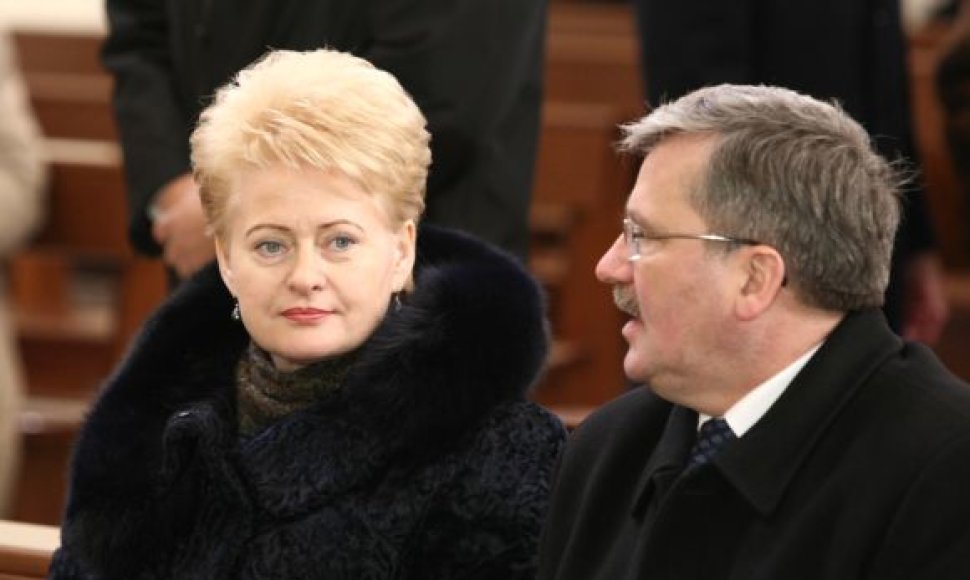Grybauskaitė said that the geopolitical situation around Lithuania has changed over the last 3 years, alluding to Poland's pursuit of a closer relationship with Russia at the expense of Lithuania during this time. The apparently growing tensions between Poland and Lithuania are revealing of the shifting geopolitical climate of the wider Baltic region.
The continental Baltic region, consisting of Poland, Russia, and the three Baltic states of Lithuania, Latvia and Estonia, has undergone much change in recent years. For one, Russia has resurged as a regional power and strengthened its influence in countries like Belarus and Ukraine, which abut the Baltic region. Poland has also increased in prominence, largely due to its strong economy, which has seen consistent levels of growth despite the financial crisis in Europe. Poland has also undergone a leadership shift in this time period. Donald Tusk defeated Jaroslaw Kaczynski in parliamentary elections in 2007, and Bronislaw Komorowski took over as president from Kaczynski's late brother Lech after a deadly plane crash in 2010.
There have been some changes to Poland's relationship with Russia as a result of this shift in leadership. Since coming into office, Tusk and Komorowski have sought a more moderate line on Russia than the Kaczynski brothers, who held a hawkish position against Moscow. Poland has held several meetings with Russia, both bilaterally and with European heavyweights Germany and France. More recently, Polish rhetoric against Moscow has been less aggressive than in previous years.
But in reality, Poland's relationship with Russia is far from close and there has been little in the way of substantial shifts. Russia is still the preeminent threat to Poland from a security perspective, and Poland's political and economic orientation remains closely tied to the EU and NATO. For instance, Poland's economic and trade relationship with Germany far outpaces its business ties with Russia.
But this provides little comfort to Lithuania. As a tiny country of 3 million sandwiched between the Russian exclave of Kaliningrad and Russian ally Belarus, Lithuania is in an even more vulnerable security position vis a vis Russia than Poland. Add to this the fact that Lithuania and Poland have their own points of tension over issues such as the sizable Polish minority in Lithuania. This breeds mistrust between the two countries, and Poland and Lithuania often butt heads.
Still, Poland and Lithuania have several shared interests. First and foremost, they both have an interest in maintaining security against Russia. They are also both interested in pursuing energy diversification from Russia, something the two countries have made considerable headway on in recent months. Moscow is aware of this dynamic, and so has tried to exploit rifts between these two countries as a way of undermining potential collaboration against Russia. However, certain moves that Russia has made - such as deploying S-400s to Kaliningrad and strengthening military ties to Belarus - are ones that have spurred closer coordination between Poland and Lithuania. Therefore, Moscow has a delicate balance to maintain in trying to undermine cooperation between Poland and Lithuania without acting too aggressively, which would achieve the opposite end.















